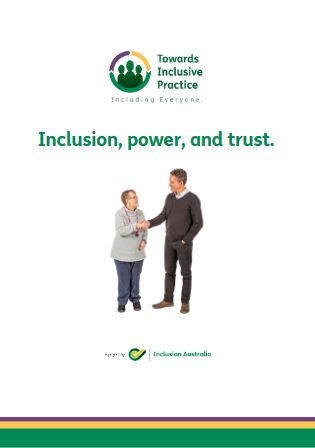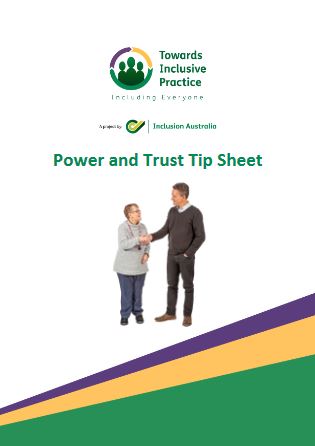Power and trust are important things to understand when thinking about being inclusive. How you use the power you have in your role or organisation can make a big difference to how people see you and building trust.
Inclusion Advisors on this project had a lot to say about power and trust. They shared their experiences – good and bad – and ideas for thinking about power and trust when meeting, consulting or working with people with an intellectual disability.
Find out more about what people had to say in our series of 4 videos, featuring Inclusion Advisors from around Australia.
Our helpful guide on Inclusion, Power and Trust is also full of ideas and tips to help you recognise and address power imbalances in your work and be more inclusive.
Resources

Guide: Inclusion, power and trust
This guide covers:
- Perceptions of power
- Acquiescence and power imbalance
- What it is like to feel powerful or powerless
- Top tips to address power imbalances

Tip Sheet: Power and trust
This tip sheet covers:
- Top tips for thinking about power
- Top tips for thinking about trust
- Reflective practice activities
Video 1: What does power mean to you?
In this film, people talk about what power means to them and their experiences of inclusion.
Video 2: When do you feel powerless?
In this film, people talk about experiences of feeling powerless and what it means for inclusion.
Video 3: When do you feel powerful?
In this film, people talk about how being included makes them feel powerful and respected
Video 4: What will you do to be more inclusive?
In this film, people with an intellectual disability challenge you to think about power and inclusion in your own practice.
